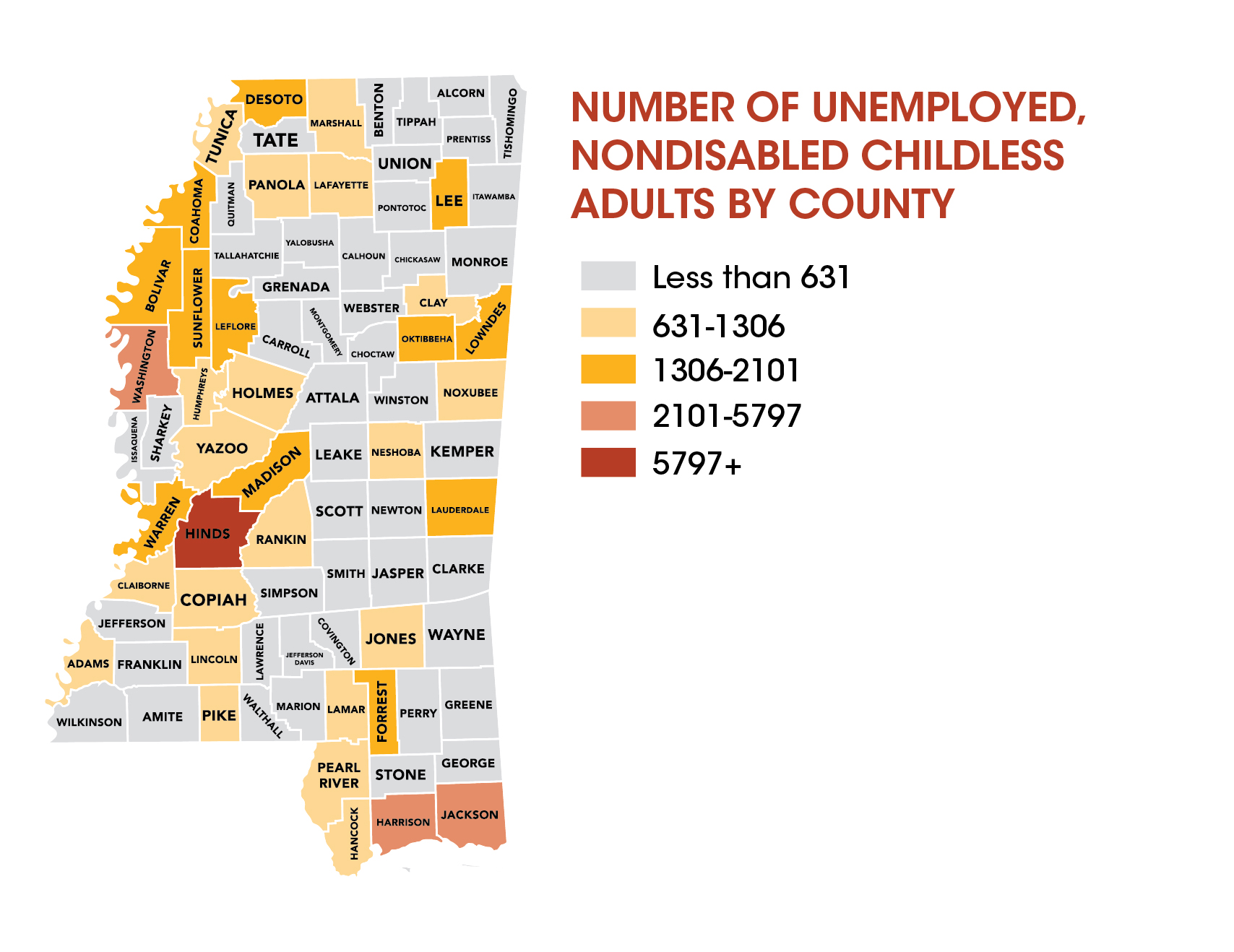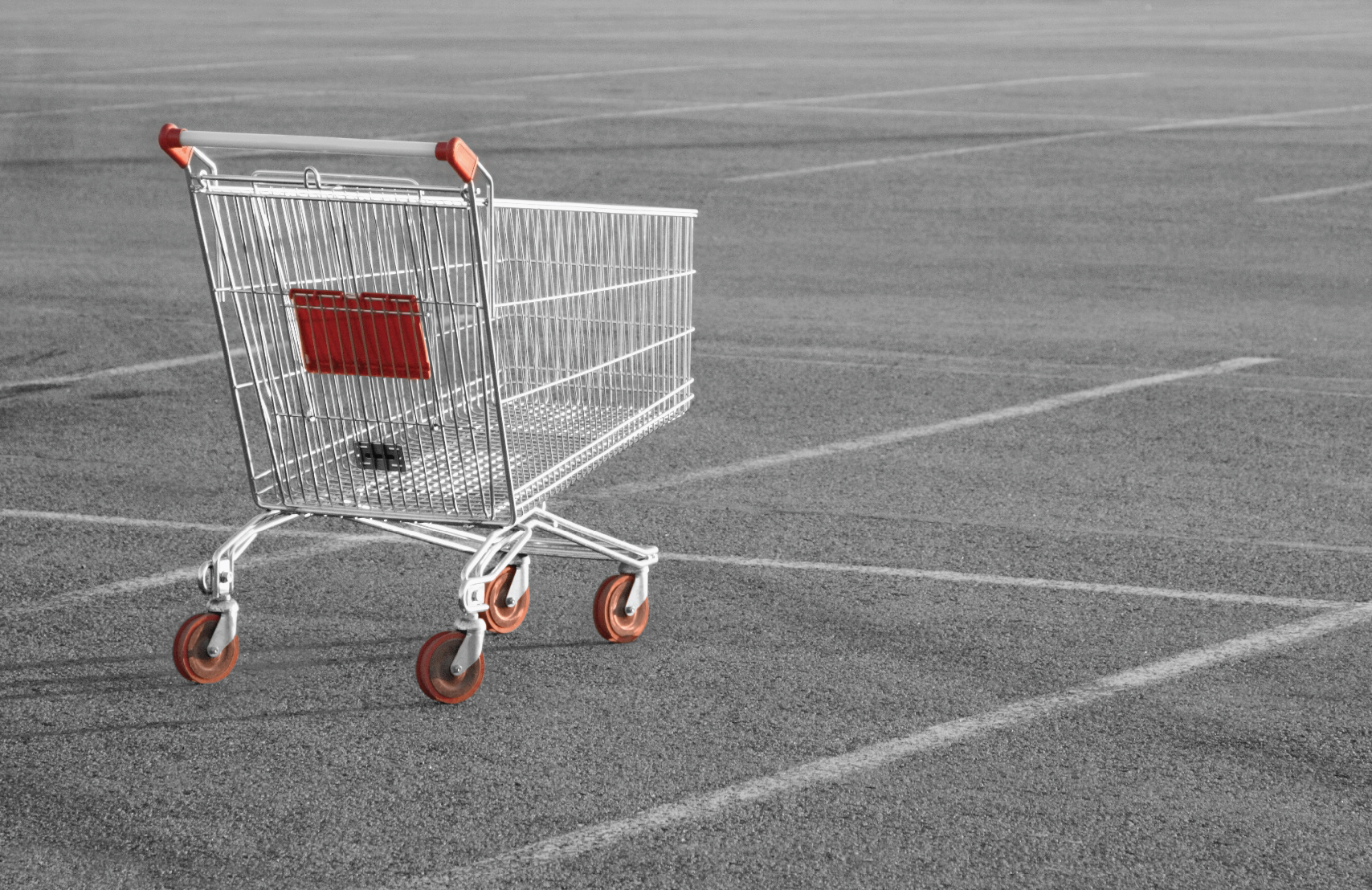Childless Adults in Mississippi Will Lose SNAP Benefits in 2016
January 14th, 2016
In 2016, more than 500,000 people across the United States will lose their food assistance benefits due to a return of a three-month time limit on Supplemental Nutrition Assistance Program (SNAP, formerly known as the Food Stamp Program) benefits. Initial analysis from an upcoming brief by the Mississippi Center for Justice indicates that up to 80,000 Mississippians – unemployed adults (18-49) who are childless and nondisabled – could lose their SNAP benefits, regardless if they are actively seeking work. See Map.

Federal law limits unemployed, nondisabled childless adults to three months of SNAP benefits out of every three years unless these individuals are employed or participate in a work training program for at least 20 hours a week or participate in workfare. However, Mississippi’s unemployment rate, one percentage point above the national average of six percent (as of November 2015),[1] allows the state to qualify for a statewide waiver.
Unemployed, nondisabled childless adults on SNAP are among the poorest with an average monthly income of approximately 17 percent of the poverty line – about $2,000 per year for a household of one in 2015 – and often qualify for no other assistance. With the return of the time limit, this population will lose an average of $150 to $170 in food assistance per person per month.[2] This loss in food assistance benefits will not only hurt this struggling population even more but local businesses as well.
One of SNAP’s many strengths is that it is one of the fastest, most effective ways to stimulate a struggling economy. Since benefits can only be used to purchase food, these benefits go a long way in supporting local grocery stores, farmers’ markets, and the economy. Every $1.00 increase in SNAP benefits generates about $1.70 in economic activity.[3] This economic activity helps further stimulate economic growth and fosters job creation, particularly in a weak economy.
SNAP is the nation’s most important anti-hunger program and is a powerful tool in helping to keep people out of poverty. Now is not the time to further reduce this already modest assistance to these struggling individuals who now have even less ability to keep food on the table.
[1] U.S. Bureau of Labor Statistics
[2] Bolen, E., Rosenbaum, D., Dean, S., & Keith-Jennings, B. (2016, January 6). More than 500,000 adults will lose SNAP benefits in 2016 as waivers expire. Center on Budget and Policy Priorities. Retrieved from http://www.cbpp.org/research/food-assistance/more-than-500000-adults-will-lose-snap-benefits-in-2016-as-waivers-expire
[3] Center on Budget and Policy Priorities. (2015, January 8). Policy basics: Introduction to the Supplemental Nutrition Assistance Program. Retrieved from http://www.cbpp.org/research/policy-basics-introduction-to-the-supplemental-nutrition-assistance-program-snap







